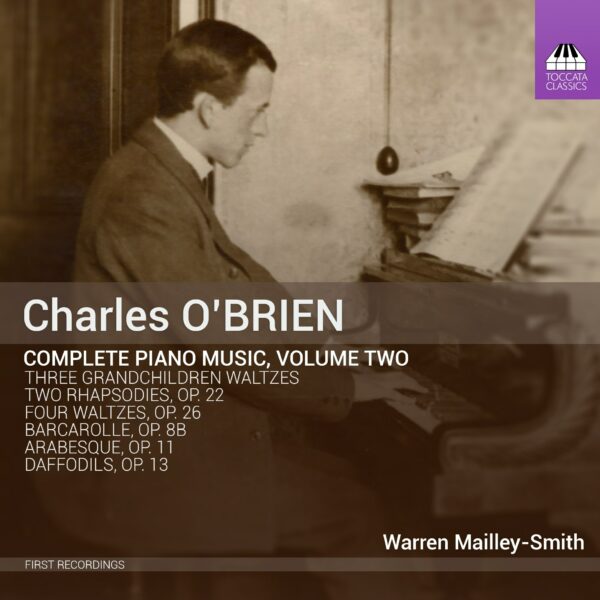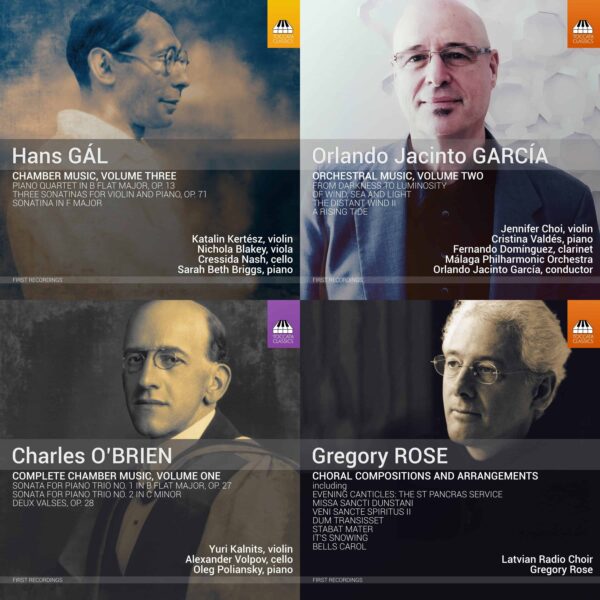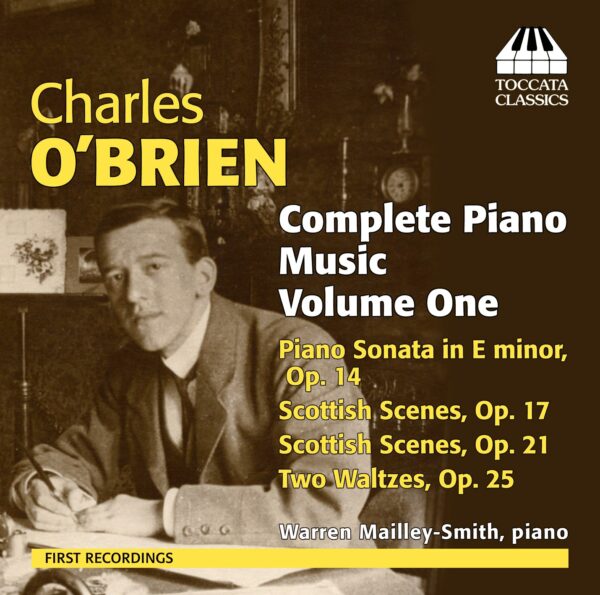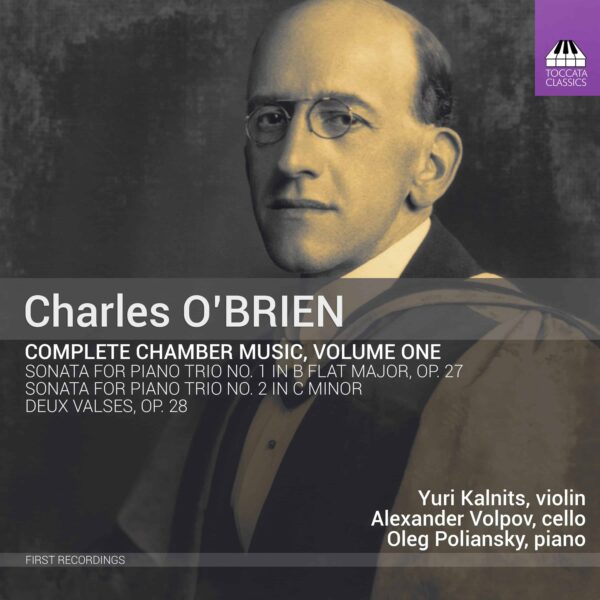Charles O’Brien: Complete Piano Music, Volume Two
Charles O’Brien (1882–1968) was a mainstay of musical life in Edinburgh, but his attractive, lyrical muse has long been forgotten even there, let alone anywhere else. This third recording in a series devoted to his music reveals a composer whose lively music reflects his Scottish heritage, mixing Brahmsian grand gestures with Schumannesque intimacy.
Warren Mailley-Smith, piano
Listen To This Recording:
- Two Rhapsodies, Op. 22: No. 1 in E flat major
- No. 1 Tendresse
- No. 2 Joie de Vivre
- No. 3 Jeunesse
- No. 4 Exstase
- Arabesque, Op. 11
- Daffodils, Op. 13
- No. 1 Suzanne
- No. 2 Un peu triste, un peu gai (David)
- No. 3 Sans souci (Neil)
- Barcarolle, Op. 8b
- Two Rhapsodies, Op. 22: No. 2 in G minor
Four Waltzes, Op. 26:
Three Grandchildren Waltzes:





Henry Fogel :
“O’Brien’s music is extremely attractive. … These pieces are wonderful genre pieces, with real melodic inspiration and enough harmonic variety to retain the listener’s interest throughout. … These are attractive pieces that do reward second and third hearings, and give us an opportunity to discover a talented composer. As in the first volume, Mailley-Smith is clearly devoted to the music and plays it with warmth and conviction.” —Fanfare Magazine, March/April 2016
Roderic Dunnett :
“If the opening E flat Rhapsody Op 22, written at the close of the Great War, has charm, it is No 2, in G minor, which feels to be the most substantial work on the entire disc. Yet where O’Brien scores time and again is also in a positive welter of more lightweight works included here, and played with great charm and feeling by Warren Mailley-Smith. O’Brien is, unsurprisingly, a Chopin specialist, and this shows in both the Rhapsodies, to which a degree of — but not too much — Brahmsian weight is added… Waltzes they may be, but they are quite substantial pieces … pure enchantment. Call it light music that might be heard from a restaurant pianist or in some salon, each is still beautifully conceived and wonderfully expressive, its content rich and meaningful. The Arabesque of 1906 is a piece of joyous bluster and skedaddle; … These [Three Grandchildren Waltzes] are not wan or shy, but surprisingly sprightly, and Mailley-Smith’s delightful rhythmic precision plus a lightly sprinkled dose of vibrato serve the works perfectly; it is the last which has the most lovely, easeful, cheeky and carefree feel. … Rhapsody, a full thirteen minutes in which the piano lets rip with all the fire and energetic fast flow of its nineteenth century predecessors, both German and Russian, almost aggressively bringing this second O’Brien disc to a truly dramatic conclusion. Both the environment and ambience (Potton Hall, Suffolk, a celebrated recording studio) and the very direct and well-placed recording make this highly rewarding.” —Music & Vision Daily, April 2016
Music & Vision Daily :
‘The Arabesque of 1906 is a piece of joyous bluster and skedaddle; […]
Both the environment and ambience (Potton Hall, Suffolk, a celebrated recording studio) and the very direct and well-placed recording make this highly rewarding’
—Roderic Dunnett, Music & Vision Daily